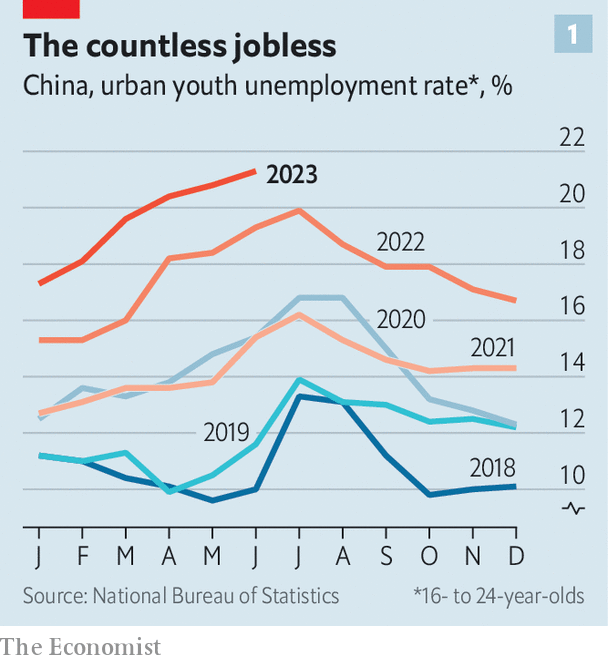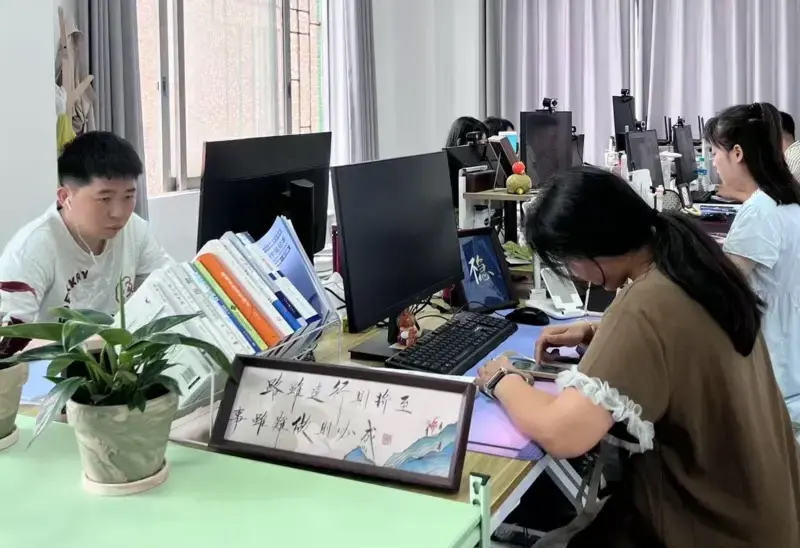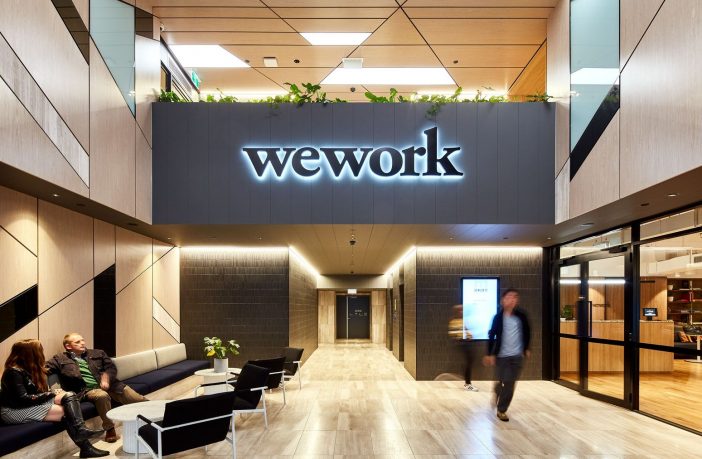It’s Monday morning, your alarm goes off, and you’re thinking, "What I would give to have one more day before I have to go back to the office."
But alas, you must make a living, and it’s back to the rat race so that you can pay the bills and afford those stress-relieving weekend drinks.
Now, imagine waking up on a Monday morning and getting yourself out of bed to pay to go into an office…
Well, that’s the exact situation many of China’s unemployed youths are finding themselves in.
The ‘pretend to work’ trend is sweeping the country, with many members of Gen Z paying RMB30-50 a day to use communal workspaces that provide them with a desk, Wi-Fi, coffee, lunch, and an atmosphere mimicking an office work environment.

Pretend to work office. Image via BI
Advertisements of such companies first began circulating in Chengdu and Hangzhou. Now, these firms have also cropped up in other major cities, including Beijing, Shenzhen, Shanghai, Nanjing, Wuhan, and Kunming.
At first glance, this might seem like a mindboggling fad—pay to pretend to work?
However, in many cases, a better phrasing would be ‘pay to pretend to have a job.’
(Also, let’s be real—how many people in your office have mastered the art of getting paid to pretend to work?)

Image via JK
Many of the youths paying for the workspaces on offer are using their days to apply for jobs, hone their skills in hopes of increasing their employability, or even work on developing their own start-ups.
In addition, students and recent graduates use the mock offices to provide (albeit false) proof of completing an internship, which in many circumstances is required for them to receive their diplomas or advance in the job market.
If you ask why this trend has emerged, you find yourself with no shortage of answers. These ‘fake offices’ are the direct result of the multitude of social and economic pressures that today’s youths in China are facing.
Let’s start with the most fundamental cause: unemployment for China’s under 24 demographic currently stands at around 14.5%—a welcome drop from the over 20% of just two years ago.

Image via The Economist
China is notorious for the extreme pressure and competition students find themselves in to get into a good school—now, envision graduating and finding your options limited and placements at companies unobtainable.
There is a drastic numerical mismatch between those receiving an education and openings in the job market.
This trend highlights the challenges faced by young people in China's job market and their creative responses to navigate those challenges.
They face a huge amount of parental and societal pressure to ‘do something with their lives,’ and after working so hard for years to graduate, it’s no wonder so many find themselves despondent upon failing to find employment.
These ‘fake offices’ offer a space to socialize away from helicopter parents, a way to escape the isolation and stigma of being unemployed, and a place to potentially network.

Image via English News
It is also important to note that a large percentage of those taking advantage of these workspaces are not technically ‘unemployed’; surveys indicate that around 60% of the youths utilizing these spaces are freelancers or digital nomads—having an office outside of their parents’ homes allows them to feel more independent.

Image via Coworking Insights
Shared office spaces are, of course, far from a new concept—WeWork was founded in New York City in 2010 and became a massive global phenomenon.
WeWork provides shared workspaces, or co-working spaces, to businesses of all sizes, from freelancers to Fortune 500 companies.
Despite the company's valuation plummeting from $47 billion in 2019 to bankruptcy in 2023—in large part due to the work-from-home model implemented during the pandemic—WeWork currently continues to operate in numerous countries, including China.
However, charges for an individual to use their offices are between RMB210 and RMB325 per day—a price tag only the dutifully employed can begin to afford.
In addition, other companies such as Starbucks, that have previously been notorious for offering ‘alternative workspaces,’ have begun to clamp down in China after patrons exploited their privileges by crowding the coffee giants’ lounges by bringing desktop computers—and yes, even printers.

Tang ping cartoon. Image via Sina Weibo
Members of the older generations have criticized this new trend, saying it “promotes escapism” and is an offshoot of the tang ping (躺平) or ‘lying flat’ movement that is described as a passive form of resistance against societal pressures to overwork and achieve constant success.
In contrast, younger generations say it represents a rejection of the competitive ‘rat race’ culture and the 996-work schedule (one that ultimately they hope to have the opportunity to join...)
Even the founder of the now infamous Pretend to Work Company—which launched this past April in Dongguan and within a month found its offices full—calls his operation a “social experiment.”
“What I’m selling isn’t a workstation, but the dignity of not being a useless person,” says Feiyu (his public pseudonym).
It is yet to be seen if this fad will last, but it has proven to provide short-term relief from the harsh reality facing recent graduates, and the trend underscores the deeper underlying systemic issues for youths in China that for now remain unresolved.
[Cover image via wikiHow]






















0 User Comments